Do you want to lose weight without going on a diet? It’s totally possible, according to one health expert. Vicky Justiz is a fitness trainer and influencer with millions of followers across social media platforms. In a recent video she reveals some easy ways to drop dress sizes that don’t involve dieting.
“Today we're gonna be having a little bit of a chat about how to stay in a calorie deficit to meet your fat loss goals,” she says at the start of the clip. “So if your goal is to lose fat, to lose belly fat, to tone up, to get all snatched, to get a small waist, I got you.” We also asked Body Network’s Resident RDN, The Diet Diva, Tara Collingwood, MS, RDN, CSSD, LD/N, ACSM-CPT, a Board Certified Sports Dietitian, to weigh in on her tips.
Calculate Your BMR

She continues to explain that “losing fat is not just about exercise, about doing a bunch of cardio, it's also about getting your nutrition right, and that includes being in a calorie deficit. So let's break down what a calorie deficit even means,” she says, stating that a calorie deficit means burning more calories than you consume. She elaborates that a lot of people fail to calculate correctly because they only count the calories burned during exercise. “So your body already burns a certain amount of calories at rest. This is called your resting metabolic rate, also known as RMR,” she says. You need to add your resting rate to your “move” calories, which you can do using an online calculator. Once you find your BMR, you can use the approximation to “help you stay on track.”
Collingwood agrees that your total calories burned each day is a combination of your resting metabolism with the addition of calories burned “digesting food, doing daily activities like just walking around the house, store, work, etc., and then finally the exercise calories,” she says. “Every day is different depending on your daily activity and exercise calories, but the resting metabolism will pretty much stay consistent unless you have major weight or body composition changes.”
Don’t Be Too Specific with Calorie Counting

She doesn’t recommend counting calories “to a specific fraction” because “it's not gonna be accurate,” and “it's not gonna be fun,” she says. “So how do we actually stay in a calorie deficit without spending every second of our lives counting our calories?” Counting calories exactly is not fun, “but it is good to have an idea of how many you need and how many are in the foods you are eating throughout the day,” notes Collingwood.
Nutrient Dense vs. Calorie Dense Food

She adds that “what helps a lot with feeling full and satisfied while you're in a calorie deficit is prioritizing nutrient-dense foods and minimizing calorie-dense foods.”
Nutrient Dense Foods

“Nutrient-dense foods are any kind of foods that have a lot of nutrients per calorie,” she explains, offering the examples of veggies, whole grains, eggs, and lean meats, “just like anything that has a lot of nutrients.” Because they've got a lot of nutrients, “they can help keep you full without being too calorie-dense.”
Calorie Dense Foods

Then there are calorie dense foods, including junk foods, sweets, “even oils like olive oil is calorie dense,” she says. “However, olive oil also has a lot of nutrients. So it's kind of like both. So obviously, oil should not be avoided. I use olive oil in everything, but if you're trying to stay in a calorie deficit, you're not gonna be drenching all your food in like five tablespoons of oil.”
Make “Simple Swaps”

“Sometimes it's all about making a simple swap,” she says. “Instead of having a huge, huge plate of rice and a little bit of protein, cut that rice in half. Add a bunch of veggies to your plate and increase the protein a little bit and you'll be feeling that meal a lot more satisfied and with probably the same or less amount of calories.” Collingwood loves the idea of filling up on nutrient dense foods, “which also tend to have a higher water, fiber, and protein content to keep you feeling full and satisfied,” she points out.
Eat Foods with High Water Content
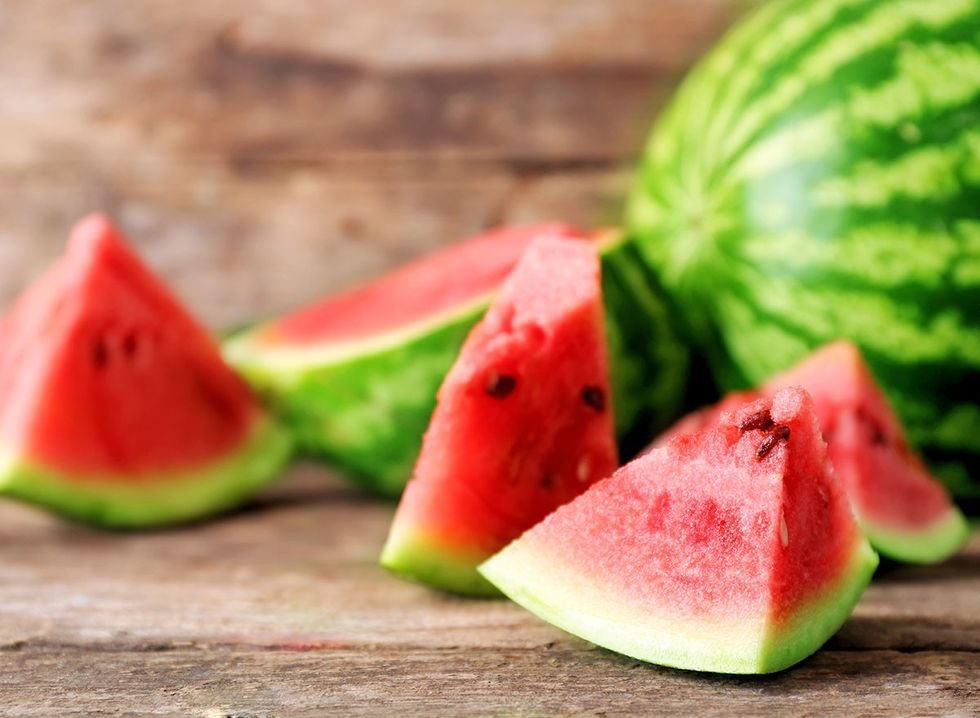
Another trick? “Focus on foods that have high water content,” she says, using the example of watermelon. “You find yourself feeling hungry like you are, just not satisfied. Eat a whole watermelon. I mean, maybe not a whole watermelon, but eat some watermelon,” she says. Other examples include hard boiled eggs and cucumbers.
Eat Lots of Protein

“Another thing you should be doing is having a lot of protein,” she said, specifying that “at least around 30% of your calories should be coming from protein,” which you should include in every meal. “A lot of people have this misconception that protein is only for growing muscle and it is not. Muscle helps you stay really full. So it also helps sustain a calorie deficit. So I try to include some protein every single meal.”
Have Protein After Workouts

“And after my workouts, I always have some kind of protein source,” she says, mentioning protein shakes and protein bars. While “you should try to get most of your protein from like your food sources,” supplementing with protein can be helpful. “It's what I do that helps me keep my protein intake up. It's just also a lot more convenient for me.”
Related: This Is Exactly How to Lose Body Fat This Year
Use Protein Bars as a Sweet Treat

She also suggests using protein bars as an “alternative” to a candy bar or sweet treat. “It's a great alternative to having a candy bar or something that you eat and it still leaves you feeling kind of empty afterwards,” she says, adding that it satisfies her “crazy sweet tooth.” Any way you can get protein is good, as it helps keep you full, notes Collingwood. “Real food sources like meat, eggs, greek yogurt, cheese, legumes, etc. are good choices, but some protein bars and shakes can definitely fit as a replacement for sugary candy bars or high calorie coffee drinks,” she says.
RELATED: 3 Science-Based Workouts to Boost Your Fitness
Avoid Snacking

Finally, she reveals that she avoids snacking. “I know that the habit a lot of people have, but snacking can really be a culprit. I try not to snack much. I just try to make sure my meals are nutritious and delicious and I feel satisfied after them and it kind of reduces my craving to snack on food,” she concludes.
Having a snack between meals is not the problem, “it is what and how much we are snacking on that can really make the difference between a good snack that can bridge appetite to a high calorie addition to your day that could contribute more calories than you need,” says Collingwood.
💪🔥Body Booster: Try adding protein to all of your meals, and slipping in a protein shake or bar when you aren’t getting enough.









 Shutterstock
Shutterstock Shutterstock
Shutterstock Shutterstock
Shutterstock Shutterstock
Shutterstock Shutterstock/NDAB Creativity
Shutterstock/NDAB Creativity Shutterstock
Shutterstock Shutterstock
Shutterstock Shutterstock
Shutterstock Shutterstock
Shutterstock Shutterstock
Shutterstock






 Shutterstock
Shutterstock Shutterstock
Shutterstock Shutterstock
Shutterstock Shutterstock
Shutterstock Shutterstock
Shutterstock Shutterstock
Shutterstock Shutterstock
Shutterstock

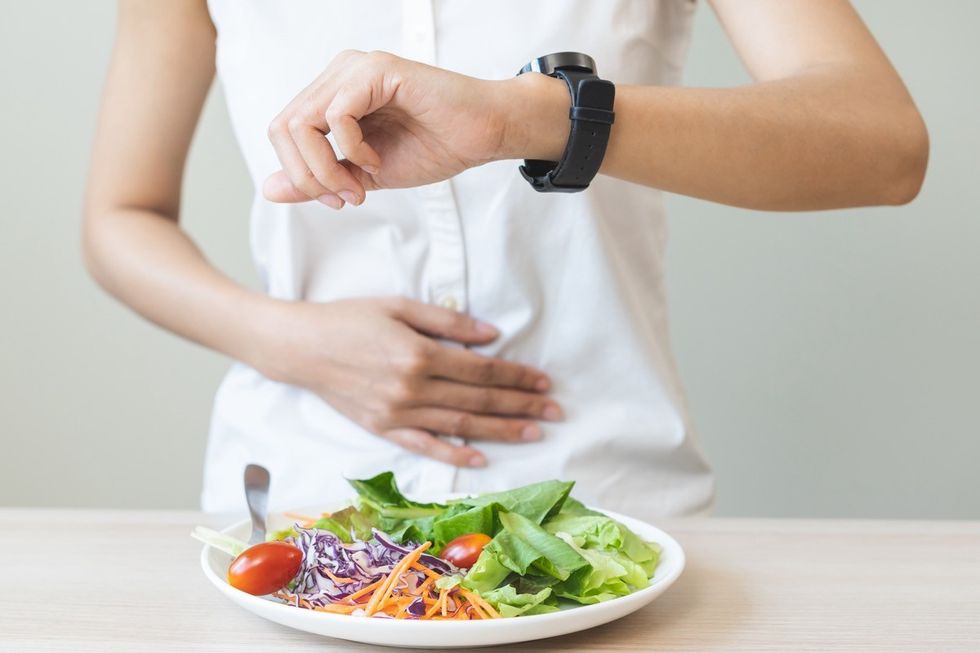 Shutterstock
Shutterstock Shutterstock
Shutterstock Shutterstock
Shutterstock Shutterstock
Shutterstock Shutterstock
Shutterstock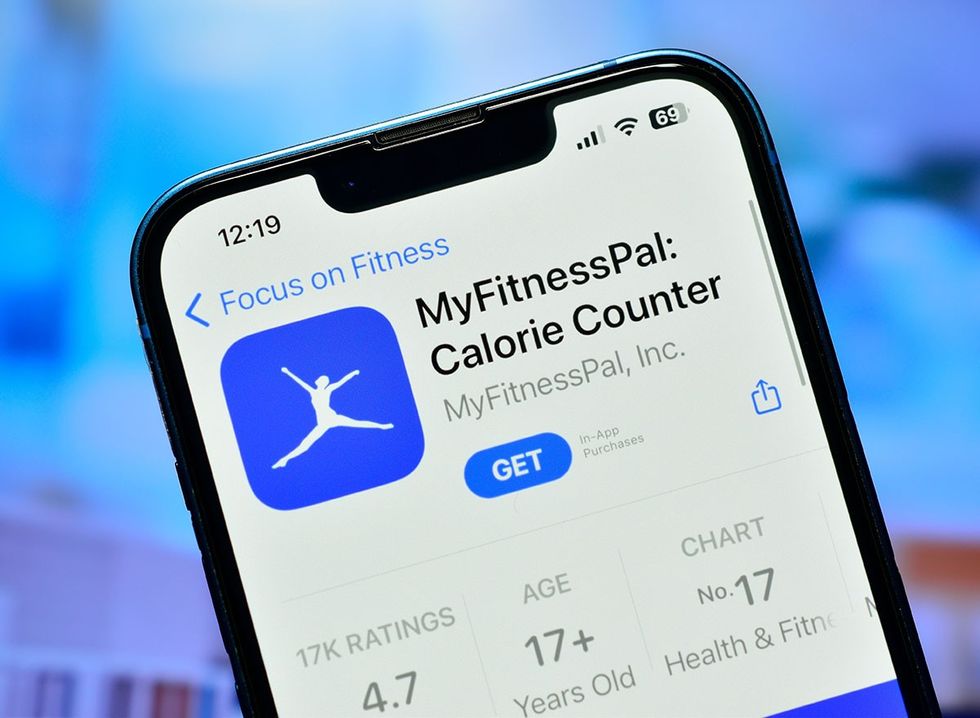 Shutterstock
Shutterstock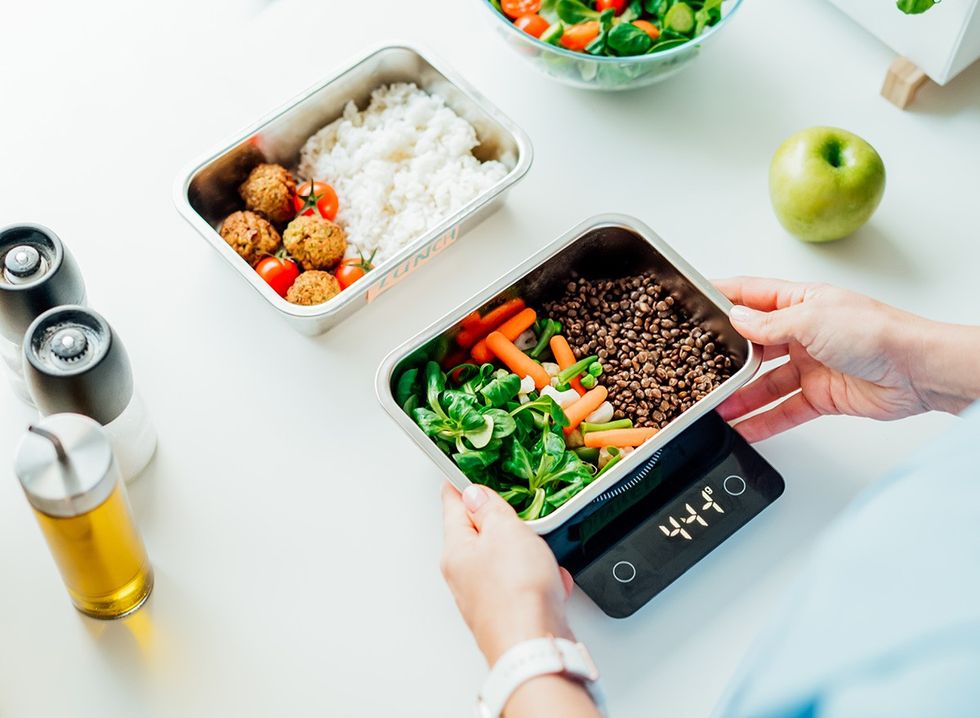 Shutterstock
Shutterstock Shutterstock
Shutterstock Shutterstock
Shutterstock Shutterstock
Shutterstock Shutterstock
Shutterstock Shutterstock
Shutterstock Shutterstock
Shutterstock Shutterstock
Shutterstock Shutterstock
Shutterstock
 Shutterstock
Shutterstock Shutterstock
Shutterstock Shutterstock
Shutterstock Shutterstock
Shutterstock Shutterstock
Shutterstock Shutterstock
Shutterstock Shutterstock
Shutterstock Shutterstock
Shutterstock

 I'm a Nutritionist and These 9 High-Protein Snacks Keep My Clients Full While Losing 50 Pounds
I'm a Nutritionist and These 9 High-Protein Snacks Keep My Clients Full While Losing 50 Pounds
 Shutterstock
Shutterstock 2. Processed FoodsShutterstock
2. Processed FoodsShutterstock Shutterstock
Shutterstock Shutterstock/Prostock-studio
Shutterstock/Prostock-studio Shutterstock
Shutterstock Pro TipsShutterstock
Pro TipsShutterstock Shutterstock
Shutterstock Shutterstock
Shutterstock Shutterstock
Shutterstock Don’t Drink as Much AlcoholShutterstock
Don’t Drink as Much AlcoholShutterstock Most Women on GLP-1s Are Making a Few Common MistakesShutterstock
Most Women on GLP-1s Are Making a Few Common MistakesShutterstock Soda and Sugary DrinksShutterstock
Soda and Sugary DrinksShutterstock Shutterstock
Shutterstock Eat BreakfastShutterstock
Eat BreakfastShutterstock And Improve Insulin SensitivityShutterstock
And Improve Insulin SensitivityShutterstock Belly Flab Strip Tip: Sugar and Fat Calories Leave Its Mark on Your BodyShutterstock
Belly Flab Strip Tip: Sugar and Fat Calories Leave Its Mark on Your BodyShutterstock Shutterstock
Shutterstock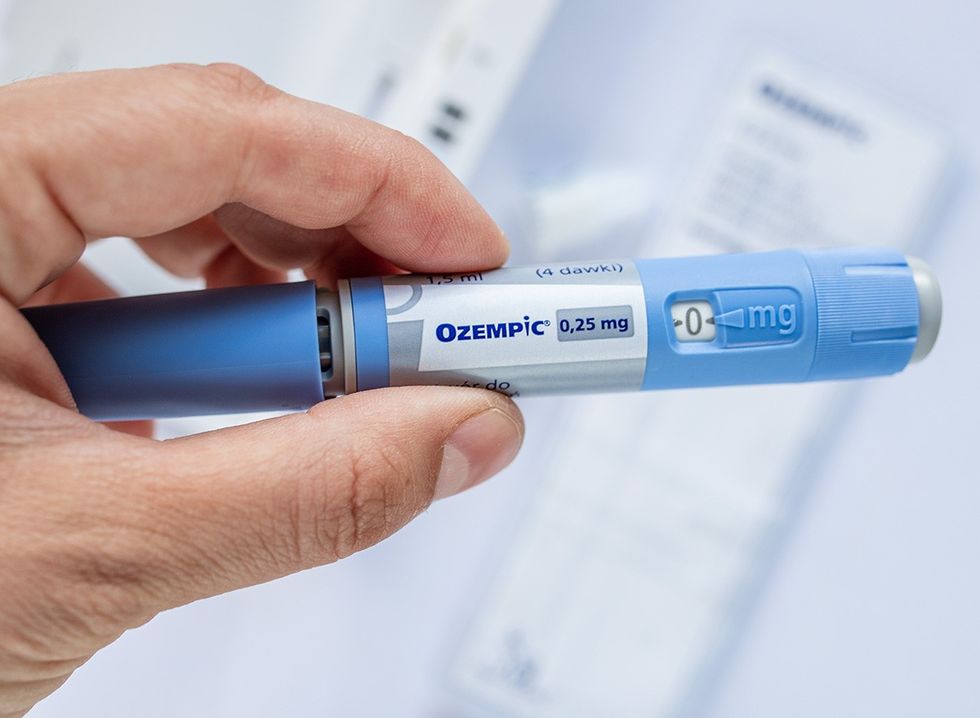 The Drugs Mimic the GLP-1 Hormone Naturally Produced by the BodyShutterstock
The Drugs Mimic the GLP-1 Hormone Naturally Produced by the BodyShutterstock 3. Deep-Fried ItemsShutterstock
3. Deep-Fried ItemsShutterstock